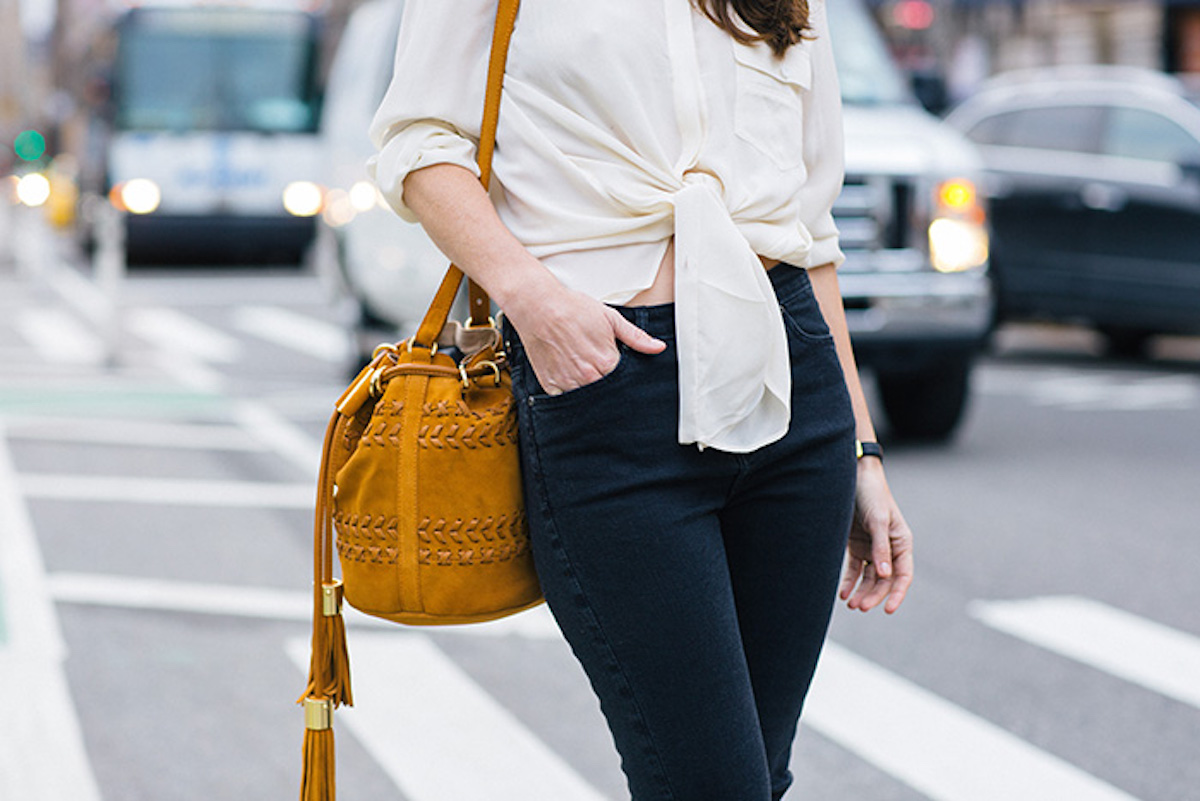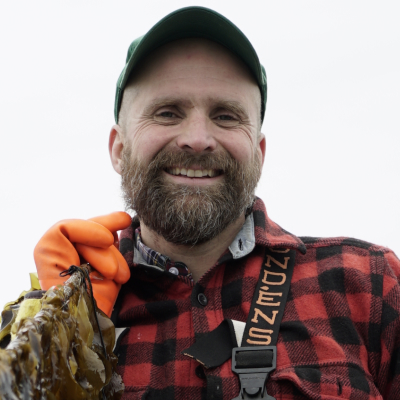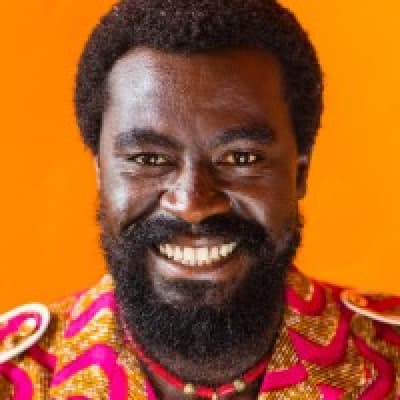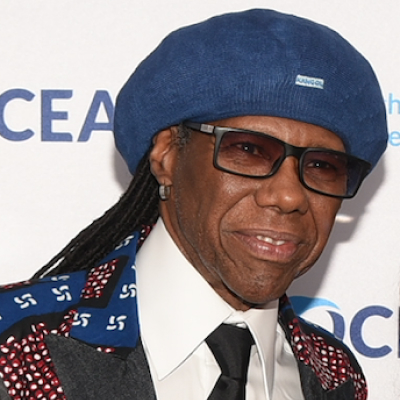I can afford to be a snob about fashion.
A few years ago, just locally-made was enough for me. Maybe some organic cotton in there. I mean, just one thing was better than the status quo. But as the fashion scene has developed, we’re seeing the emergence of brands that address literally every issue within fashion with an astounding fastidiousness, and are perfectly fashionable on top of all of that. My bar has been raised.
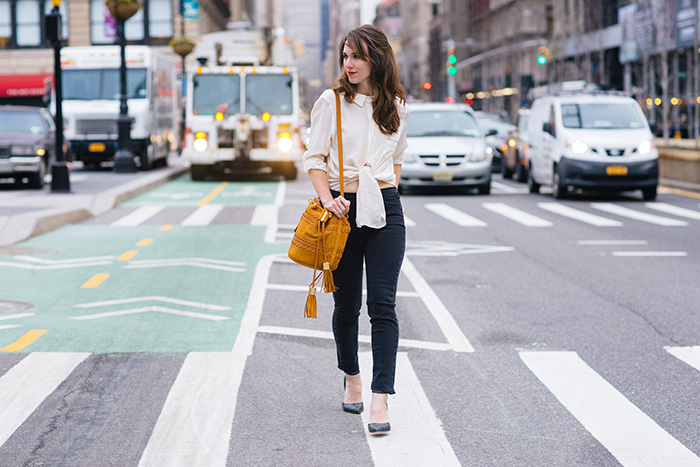
Blouse and purse are secondhand, shoes are by Nisolo. All Photos via Lydia Hudgens.
Denim, it turns out is the perfect fashion category for this attention to detail. You wear jeans over and over for years. They are hard to stain, and if they rip? No worries. They’ve now got character. I can’t say the same for a white blouse, which is why I buy them secondhand, as in this picture! Find secondhand white blouses at Vestiaire, Or I buy cotton blouses from H&M, where they are affordable but also have some organic cotton in there. I don’t want to start crying when I inevitably get red wine on a $150 blouse. But denim? I think $189 is reasonable for an amazing pair of sustainable and ethical jeans. The price-per-wear is on point.
At the end of last year, I was sent a pair of black skinny jeans by a new denim brand, Outland Denim.* Their offerings are edited and simple: men’s and women’s jeans in black and indigo, dark and washed. That’s it. But they fill a core need of mine for quality jeans that I can feel wonderful about. That’s because not only are they chic and sustainable, they’re also ethically made, and give back. All the things!
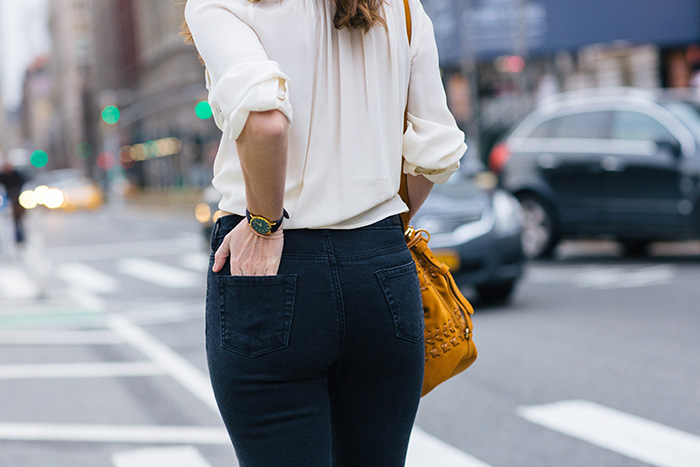
via Ecocult, All photos by Lydia Hudgens
Outland Denim fights against trafficking and exploitation in two ways: It donates AU$50 (about US$45) from every pair of the men’s and women’s jeans sold to frontline agencies in the fight against human trafficking and exploitation, such as Destiny Rescue, a nonprofit which rescues trafficked children and women, rehabilitates them, and invests in educational and vocational programs to protect vulnerable women and children. Outland Denim also provides training and employment to rescued young women in Cambodia. They earn a living wage, and though they are assigned to a specific task, such as belt loops or pockets, they are rotated through so they learn every part of the jean-making process.
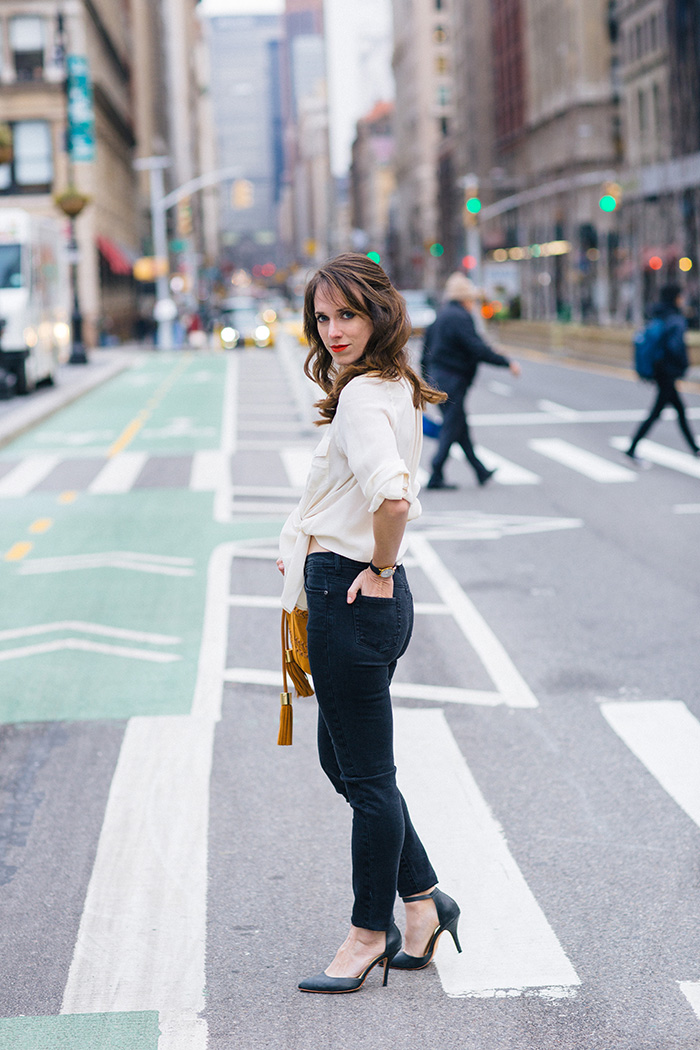
via Ecocult, All photos by Lydia Hudgens
And then we get into the supply chain, which is detailed, to say the least. The denim is from a Turkish mill called Bossa, which is involved in the Better Cotton Initiative (BCI), abides by the Global Organic Textile Standard and has a variety of ISO certifications. It’s dyed with natural indigo dye instead of toxic synthetic dye. The zippers are sourced from YKK, which creates zips from recycled materials, is part of the Zero Discharge of Hazardous Chemicals Initiative (ZDHC), and won the Biodiversity Protection Award in 2014 for environmental stewardship. YKK provides vocational training and educational support for young people; a childcare center for their Bangladeshi workers; and free health examinations for employees and their communities. The thread is by Coats, which is also part of the ZDHC Initiative and is ISO 14001 ‘Environmental Management Systems’ certified. The buttons and rivets are by Timay and Tempo, which is Oeko-Tex Standard 100 certified. Viet Thang Corporation supplies the pocket liners – it’s certified OEKO-TEX® Standard 100, ISO 9002 and ISO 14001. Safa Impex supplies vegetable-tanned leather patches. The washhouse that imparts the fade, Tak Son, uses a three-step cleaning and testing process to make sure the discarded water is safe and clean for the environment, and is compliant with the Organic Content Standard (OCS-NL) and Organic Content Standard 100. The stickers and black cloth bags are by Print Together uses only post-consumer recycled paper and natural vegetable dyes on its products. Finally, Outland pays a little extra to utilise DHL’s ‘climate neutral service’.
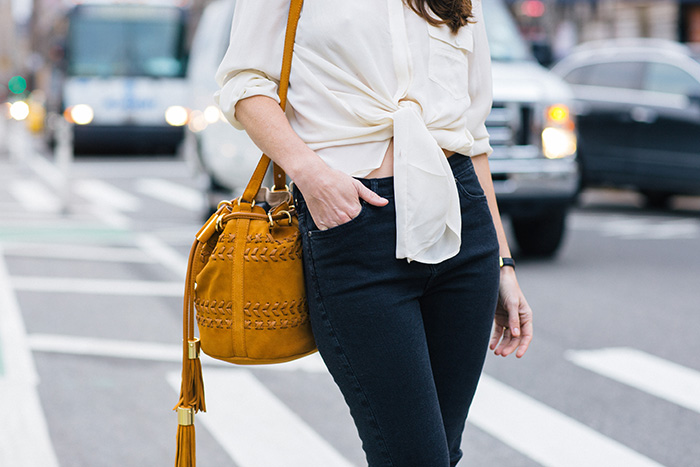
via Ecocult, All photos by Lydia Hudgens
The jeans fit me so well, when I couldn’t fit them into my drawer, I was inspired to raise the bar on the rest of my pants and jeans, and ended up cleaning out my drawer, putting a few pairs of jeans in the donate pile, and getting that much closer to my perfect capsule wardrobe. So go ahead, raise the bar for the fashion you’ll wear. Some might consider it snobbish. Others, like me, consider it sustainable.
Moving Beyond Consumption
This year, I’m urging you to think beyond your own personal consumption, and to take up the fight for systemic change in issues you are passionate about. If you care about fighting human trafficking, find how how many slaves work for you. And make sure to donate to and sign up for updates from organizations like Destiny Rescue, A21, and Stop the Traffik. Conscious consumerism is just the start. We need to turn our work and gaze outward.
Read the original article on Ecocult.

